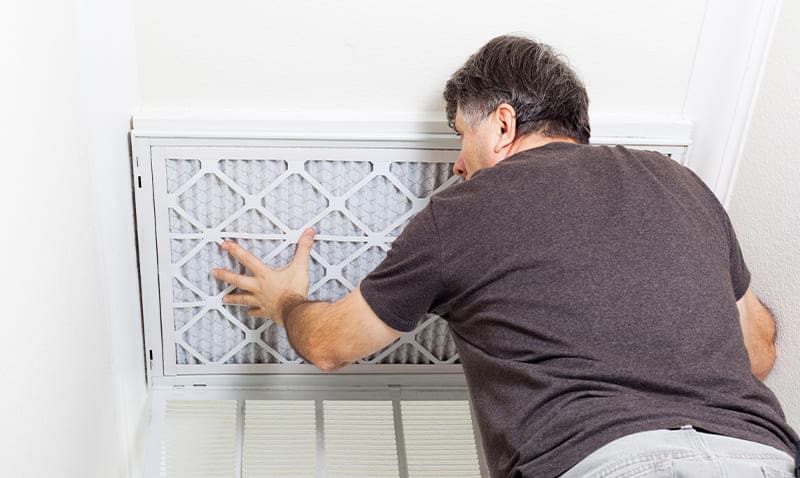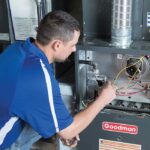Are expensive air filters worth it? It’s no secret that air pollution is a huge problem in many parts of the world. It’s been linked to various health problems, from asthma to heart disease. That’s why it’s essential to improve the air quality in your home or office. One way to do this is by investing in air filters. But are they worth the price? That’s a question that many individuals ask themselves when looking to purchase one of these filters.
In this blog post, we’ll look at some of the pros and cons of expensive air filters and see if they’re worth it.
Home Freshness and MERV Ratings
Minimum Efficiency Reporting Value (MERV) ratings are an excellent place to start when looking at air filters. The MERV rating system was designed to measure how well an air filter can eliminate particles from the surroundings. The higher the MERV rating, the more expensive the filter will be.
Filters with a high MERV rating have a finer mesh weave, allowing smaller particles to pass through. Our typical air filter type has a MERV rating of 8, indicating that it can keep most dirt and particles out of your house. Our premium filter has a MERV rating of 11 and is capable of filtering out the following:
- Mould spores
- Pollen
- Bacteria
- Dust mites
- Smoke
- Carbon monoxide
- Odours
- Pet dander
- Viruses (including influenza)
The airflow in your house is the direct route air takes to reach different rooms through a duct system. When a filter’s MERV rating becomes too high, the mesh weave finally begins to restrict airflow. An expensive filter blocks airborne hazards, hits all the right notes and protects without obstructing airflow.
Benefits of Buying Expensive Air Filters
The benefits of expensive air filters are plenty, but we’ll just touch on a few of the most important ones.
They have more surface area to filter the particulate matter
If you’ve ever wondered what the difference is between pleated and non-pleated air filters, look no further. Increasing the number of pleats (also known as folds) in an air filter increases its contact area, implying more space to catch particles in the air.
Pleated filters also don’t need to be replaced as frequently as non-pleated filters – just once every three months compared to once a month for non-pleated filters. When calculating the cost of a pleated to a non-pleated filter, you must triple the non-pleated filter’s cost per filter to achieve an appropriate comparison.
Uses high-quality material to filter the air better
Cheap filters are flimsy paper that does a poor job of trapping particles. In contrast, expensive filters use thicker, sturdier paper that can capture smaller particles without sacrificing airflow.
The most expensive filters also use static electricity to attract and trap particles, making them even more effective at cleaning the air in your home. Expensive air filters have a finer mesh weave. It means that they can filter out smaller particles than cheaper filters. Some expensive filters can remove particles as small as 0.007 microns – smaller than a human hair’s diameter!
Reduces wear and tear on your HVAC system
Your HVAC system must work harder when there’s a lot of dirt and dust in the air. It causes it to wear down faster, leading to expensive repairs. By investing in a costly air filter, you can extend the life of your HVAC system and avoid costly repairs down the road.
In addition, expensive air filters can help you save money on your energy bills. It is because they allow your HVAC system to run more efficiently, using less energy and reducing utility costs.
Drawbacks of Expensive Air Filters
Now that we’ve looked at some of the benefits of expensive air filters let’s take a look at some of the drawbacks.
Avoid filters with the highest MERV rating
Although the highest MERV rating may appear to be better at first glance, it may not be the most excellent option for your heating and cooling system. Check your handbook for the minimum MERV rating, and make sure you don’t go over it.
It will most likely result in air flow troubles, which will increase your energy expenditures and shorten the life of your central air unit’s blower. It is particularly true in older houses with HVAC systems not designed to accept thicker air filters.
Washable air filters are not good
A washable air filter will cost more since it will last years rather than months. While it seems to be a good concept in principle, it has several flaws, including:
- They are not as effective at trapping particles.
- The mesh weave is not as tight, so smaller particles can slip through.
- Washable air filters also require more maintenance and care than disposable ones. You’ll need to clean them every few weeks and ensure they’re completely dry before putting them back in your HVAC system.
- It can be a hassle, and if you’re not careful, you could damage your HVAC system.
Conclusion – Are Expensive Air Filters Worth It
As you can see, expensive air filters have pros and cons. Ultimately, whether or not to purchase one depends on your specific needs and circumstances. Consider the benefits and drawbacks carefully before making a decision. If you want to learn more about expensive air filters, read it here: https://www.davidgrayonline.com/blog/air-filters-is-more-expensive-better/. Deciding whether an expensive air filter is worth the price can be tricky.
If you need help with your options, you can contact Furnace Repair Winnipeg for more information. We will be able to help you figure out which type of air filter is best for your home.










